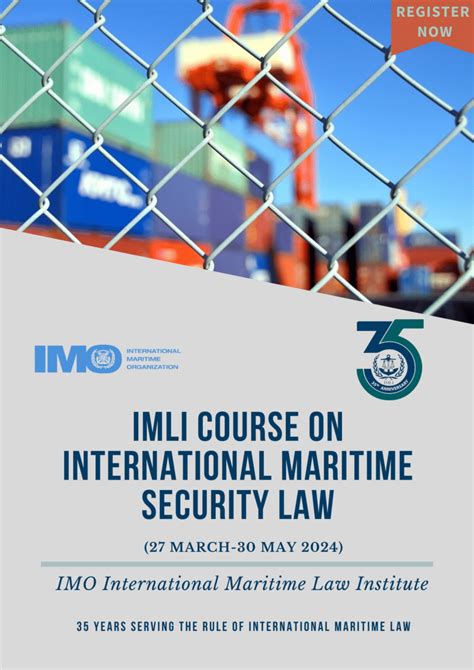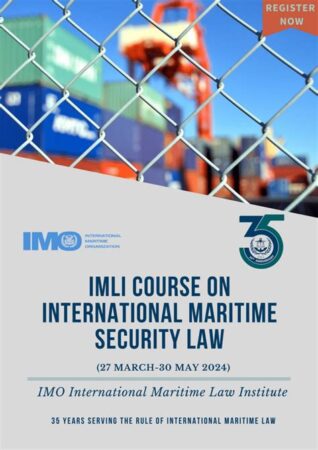
- Introduction
- Evolution of International Maritime Security Law
- Principles of International Maritime Security Law
- Implications of International Maritime Security Law
- Table of Maritime Security Measures
- Conclusion
-
FAQ About "International Maritime Security Law"
- Q. What is international maritime security law?
- Q. What are the main objectives of international maritime security law?
- Q. What are the key Conventions related to international maritime security law?
- Q. How does UNCLOS contribute to international maritime security law?
- Q. What are "piracy" and "armed robbery at sea"?
- Q. What measures are in place to combat piracy and armed robbery at sea?
- Q. How does the ISPS Code enhance maritime security?
- Q. What role do national governments play in implementing international maritime security law?
- Q. How is international maritime security law enforced?
- Q. What are the emerging challenges to international maritime security law?

Introduction
Greetings, readers! Welcome to the comprehensive guide to international maritime security law. As the world’s oceans become increasingly vital for commerce, communication, and resource extraction, ensuring their safety and security has become paramount. In this article, we will delve into the intricacies of international maritime security law, examining its evolution, principles, and implications for global maritime affairs.
International maritime security law encompasses a complex body of legal frameworks and regulations that govern the conduct of states, organizations, and individuals at sea. It aims to maintain order, prevent conflict, and protect the marine environment while safeguarding human rights and fostering maritime cooperation.
Evolution of International Maritime Security Law
Ancient Roots
The origins of maritime laws can be traced back to ancient civilizations such as the Phoenicians, Greeks, and Romans. These early maritime codes established norms for trading, navigation, and dispute resolution at sea.
Modern Developments
The modern era of international maritime security law began with the Geneva Convention on the High Seas in 1958. This treaty defined the legal status of the high seas as an area beyond the territorial jurisdiction of any state and established principles for navigation, fisheries, and pollution control.
United Nations Convention on the Law of the Sea (UNCLOS)
The most comprehensive international maritime security law treaty is the United Nations Convention on the Law of the Sea (UNCLOS), adopted in 1982. UNCLOS codifies a wide range of maritime legal principles, including territorial waters, exclusive economic zones, and continental shelves. It also establishes mechanisms for resolving maritime disputes and promoting cooperation for marine scientific research.
Principles of International Maritime Security Law
Sovereignty and Territorial Waters
States have sovereign rights over their territorial waters, extending up to 12 nautical miles from their baselines. Within this zone, they have exclusive control over activities such as fishing, mineral extraction, and navigation.
Freedom of Navigation
The high seas are considered international waters where all states have the right to navigate freely. However, this freedom is not absolute and can be restricted for reasons such as national security, environmental protection, or piracy suppression.
Prevention of Piracy and Armed Robbery
Piracy and armed robbery against ships are strictly prohibited under international maritime security law. States have a duty to cooperate to prevent and prosecute these crimes, which pose a significant threat to global maritime commerce.
Environmental Protection
International maritime security law also includes provisions for protecting the marine environment. States are obligated to take measures to prevent pollution from ships, conserve marine resources, and protect vulnerable marine ecosystems.
Implications of International Maritime Security Law
Maritime Cooperation
International maritime security law fosters cooperation among states in various areas, such as search and rescue operations, joint exercises, and information sharing to enhance safety and security at sea.
Dispute Resolution
The law provides mechanisms for resolving maritime disputes amicably through negotiation, conciliation, or arbitration. This helps prevent conflicts and maintains peace and stability in maritime areas.
Enforcement and Compliance
States are responsible for enforcing international maritime security laws within their jurisdictions. They may use naval forces, coast guards, or other law enforcement agencies to deter and apprehend offenders.
Maritime Security Challenges
Terrorism and Asymmetric Threats
Terrorism and other asymmetric threats, such as small boat attacks and the use of improvised explosive devices, pose significant challenges to international maritime security. States must enhance cooperation and intelligence sharing to combat these threats effectively.
Illicit Trade and Drug Trafficking
Illicit trade, including drug trafficking, weapons smuggling, and human trafficking, undermines maritime security and poses risks to national security and public health. International law enforcement agencies are working together to disrupt and dismantle these criminal networks.
Climate Change and Sea Level Rise
Climate change and sea level rise are emerging threats to international maritime security. They can lead to increased extreme weather events, shoreline erosion, and displacement of populations living in coastal areas. States must consider these factors in maritime security planning.
Table of Maritime Security Measures
| Measure | Description | Implementation |
|---|---|---|
| Vessel Registration and Tracking | Establishing a system for registering and tracking vessels to deter and apprehend illegal activities | Requires cooperation among states and international organizations |
| Port Security | Enhancing security measures at ports to prevent smuggling, terrorism, and illicit trade | Involves implementing security protocols, screening passengers and cargo, and using surveillance technology |
| Maritime Patrols and Surveillance | Conducting patrols and surveillance operations to monitor maritime areas, identify suspicious activities, and respond to emergencies | Employs naval forces, coast guards, and other law enforcement agencies |
| Information Sharing and Cooperation | Establishing mechanisms for sharing intelligence and information among states and international organizations | Facilitates coordinated efforts to combat maritime threats and enhance situational awareness |
| International Cooperation and Collaboration | Engaging in joint exercises, training programs, and diplomatic dialogues to foster cooperation and capacity building | Promotes mutual understanding and trust among maritime stakeholders |
Conclusion
International maritime security law is an essential framework for maintaining order, preventing conflict, and safeguarding the seven seas. Its principles and provisions have evolved over centuries, reflecting the changing needs and challenges of global maritime affairs. By embracing international maritime security law, states can work together to ensure the safety, stability, and prosperity of our oceans and the communities that depend on them.
For further reading, we encourage you to explore other informative articles on our website:
- [Maritime Law: A Guide to Governing the Seas](link to article)
- [The Impact of Climate Change on International Maritime Law](link to article)
- [Emerging Trends in Maritime Security and Enforcement](link to article)
FAQ About "International Maritime Security Law"
Q. What is international maritime security law?
A. It is a branch of public international law that focuses on regulating the security of maritime activities, including shipping, navigation, and the exploration and exploitation of marine resources.
Q. What are the main objectives of international maritime security law?
A. Its objectives include maintaining order and preventing conflict at sea, protecting the safety of ships and their crews, and combating maritime crime (e.g, piracy, smuggling, and illegal fishing).
Q. What are the key Conventions related to international maritime security law?
A. Key Conventions include the United Nations Convention on the Law of the Sea (UNCLOS), the International Convention for the Safety of Life at Sea (SOLAS), and the International Ship and Port Facility Security Code (ISPS Code).
Q. How does UNCLOS contribute to international maritime security law?
A. UNCLOS provides a comprehensive framework for regulating maritime activities, including provisions on maritime boundaries, navigation rights, and measures to combat piracy and other maritime crimes.
Q. What are "piracy" and "armed robbery at sea"?
A. Piracy is defined as any illegal act of violence or detention committed for private ends on the high seas. Armed robbery at sea is similar to piracy but occurs within the territorial waters of a state.
Q. What measures are in place to combat piracy and armed robbery at sea?
A. Measures include international cooperation, the use of naval patrols, and the establishment of special tribunals to prosecute suspected pirates and robbers.
Q. How does the ISPS Code enhance maritime security?
A. The ISPS Code establishes a comprehensive set of security measures for ships and port facilities, including requirements for security plans, training for seafarers and port personnel, and cooperation between ships and shore authorities.
Q. What role do national governments play in implementing international maritime security law?
A. National governments are responsible for implementing international conventions within their own jurisdictions, including regulations on ship safety, anti-piracy measures, and port security.
Q. How is international maritime security law enforced?
A. Enforcement of international maritime security law is primarily carried out through national and international cooperation. States have the primary responsibility for enforcing their own laws and regulations, while international bodies (e.g., the IMO and Interpol) provide support and coordination.
Q. What are the emerging challenges to international maritime security law?
A. Emerging challenges include the increasing use of autonomous vessels, cyberattacks on maritime infrastructure, and the exploitation of marine resources in disputed regions.




